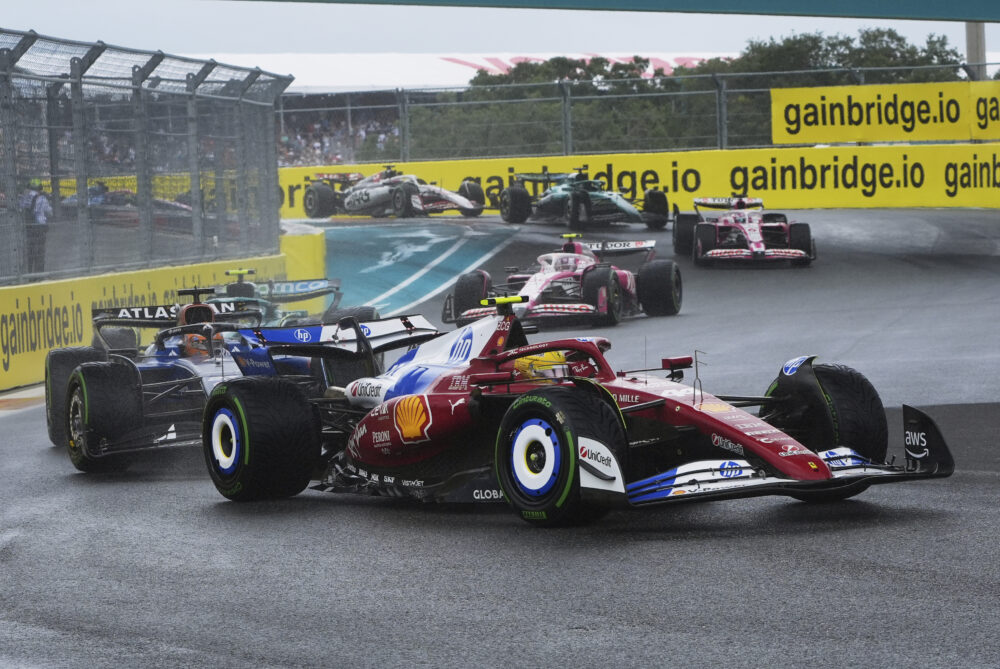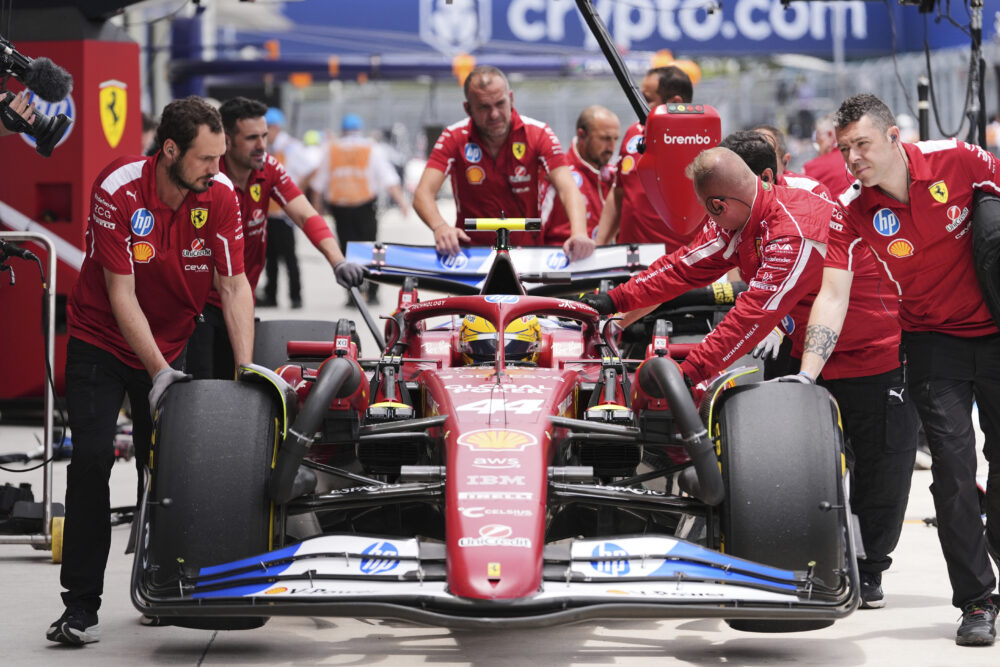Sport, Arts and Culture Minister Gayton McKenzie. Photo: Delwyn Verasamy
Apart from convicted rapist and murderer Thabo Bester, who faked his death in a bid to escape prison, no jailbird in South Africa has shown more chutzpah than Gayton McKenzie, the flamboyant minister of sport, arts and culture.
Since taking on the role in South Africa’s much-heralded government of national unity on 3 July last year, Patriotic Front leader McKenzie has made several audacious promises that have left many scratching their heads.
The one-time gangster and convicted bank robber has boldly pledged to elevate spinning as a sport for car enthusiasts. Spinning involves driving cars in circles at speed and performing stunts in and out of the vehicle. It began in Soweto in the late Eighties and was often performed as a funeral ritual.
“I will make spinning one of the biggest sports in this country. Spinning and stance [customising] are not crimes. Spinning is going to enter its rightful place.
“To all the spinners, I am here, and I’ll make sure you get recognised,” McKenzie proclaimed.
Youngsters from Phoenix to Polokwane can start dreaming of getting national colours for spinning, if McKenzie spins his way.
Not content with his spinning vision, the fast-talking minister dreams of putting the country’s name into the hat in a bid to host Formula One races here.
If Africa joins the crowded F1 calendar, it could happen by 2027, when Sir Lewis Hamilton is in the final year of his lucrative new Ferrari contract. While this could ensure a fairy-tale race that brings down the curtain on the seven-time champion’s career in South Africa, let’s be real — it’s a pipe dream.
(That’s also assuming Ferrari retains the under-performing multiple champion, who has more fashion sense than driving vooma these days.)
South Africa has no right to host Formula One if it cannot fix the many things that keep the country broken. For starters, robots and potholes? There are too many. Leaving aside the daily frustration for ordinary people — what about the cost to the economy?
The government successfully hosted the 2010 Fifa World Cup but the legacy of white-elephant football stadiums and projects to benefit communities that never got off the ground remains.
As part of McKenzie’s remit, the bid committee, appointed by him in December, has called for promoters to enable the country to compete against Africa’s cleanest capital city, Kigali, Rwanda, for the rights to bring F1 to the continent.
Rwanda’s bid is driven by President Paul Kagame, who has undertaken to build a circuit to match the expectations of the FIA, the governing body of motor sport — and its greedy aspirations.

 Final flag: Ferrari driver Lewis Hamilton of Britain (above left and right) at the Formula One Grand Prix in Miami, in the US, on 3 May. Some hope that he will end his career in a race in South Africa in 2027. Photos: Marta Lavandier /AP and Rebecca Blackwell/AP
Final flag: Ferrari driver Lewis Hamilton of Britain (above left and right) at the Formula One Grand Prix in Miami, in the US, on 3 May. Some hope that he will end his career in a race in South Africa in 2027. Photos: Marta Lavandier /AP and Rebecca Blackwell/AP
Kagame and Rwanda played host to the FIA general assembly and annual prize giving in November —where that four-time world champion Max Verstappen was penalised for swearing.
Given his tendency to operate at a snail’s pace, one must credit President Cyril Ramaphosa for not hijacking the Formula One bid like Kagame has. Indeed, a charismatic driver is needed. Ramaphosa’s slow decision-making won’t cut it in the fast-paced Formula One world.
McKenzie wants to show nobody has more vooma than a streetwise gangster who has done time, right?
He recently took a dig at Rwanda, questioning whether the East African nation, whose GDP is 30 times less than South Africa’s, has what it takes to host an F1 race. Some argue that size does not count.
Rwanda has promoted itself to the global football audience for years, albeit via a London team with an overrated Spanish coach that constantly flatters to deceive. They have been the bridesmaid for several seasons in England, poor Arsenal. But at least they guarantee a suitable plug for a visit to Rwanda.
Despite having considerably more in its arsenal than little Kigali, South Africa has failed to earn its Spurs amid controversy over spending money on marketing. Rwanda is clean, relatively safer and has much more going for it than a minister spinning in cloud-cuckoo-land.
According to those in the know, there are fewer potholes in Kigali than in Johannesburg and they can keep the lights on — at least in the capital, which is renowned for its cleanliness. It pains one to call derelict Johannesburg the pigsty it is. And that’s being kind.
The FIA is concerned about safety in South Africa, given its high crime rate. To add to this, any government officials are tainted by corruption.
McKenzie ignored crime in his briefing, yet the committee might struggle to sell the country’s bid without addressing safety concerns.
According to the Global Organised Crime Index, Rwanda is considered among the continent’s safest and most stable states. Only someone who has spent time behind bars would conveniently disregard the crime issue.
South Africa could also find itself in competition with Morocco, a North African nation that last hosted an F1 race in 1958. In its favour is the news it will become the second African nation to host a Fifa World Cup. Morocco, Saudi moneybags, Cristiano Ronaldo’s Portugal and Spain are to co-host the 2030 event.
Morocco is also hosting this year’s Africa Cup of Nations in December.
Join the dots. South Africa does not have much going for it. The country last hosted a Formula One race in 1993 at Kyalami in Johannesburg.
At least the country has a circuit and much investment has already been made to bring it up to speed with the requirements of hosting a grand prix.
Moderate estimates suggest staging a grand prix would cost around R5 billion — money the government does not have.
Does anyone expect the private sector to cough up this money?
And should the government, with its poor record on service delivery, excellence in corruption, failure to tackle crime and inability to leave the lights on or fix potholes, advise on the bid to host Africa’s first F1 race in over three decades?
Ironically, on 8 January, the ANC celebrated its umpteenth birthday amid opulence and messages that paid lip service to the poor.
The government of national unity, which holds South Africa together with a piece of string, has pledged to dedicate the next five years to driving inclusive growth and jobs, reducing poverty and tackling the high cost of living.
But it seems the sport minister is spinning a yarn. Where does F1 fit into these lofty goals?
Furthermore, McKenzie must remember that South Africa owes the International Monetary Fund $310 billion in loans after the Covid pandemic.
If the FIA, which is all about money, chose South Africa to host a grand prix, where would the funds come from?
However, the organisation is looking beyond South Africa. In December, it hosted its general assembly in Kigali. Asian countries, India and South Korea, which hosted failed grand prix in 2012 and 2013, respectively, losing millions, are bidding to return to the calendar.
Having been a motorsport fan since the rivalry between Alain Prost and the late Ayrton Senna, and the dominant days of Michael Schumacher, I would welcome F1 to South Africa. It would bring tourism and help to create jobs.
But if the minister was honest with himself, he would admit that there is more chance of hosting the Gayton McKenzie Inaugural Spinning Contest and bringing the dead back to life a la Thabo Bester than witnessing Hamilton’s F1 swansong in South Africa.
The FIA should stop stringing fans along — South Africa is on a hiding to nowhere. Rwanda is the continent’s best bet.